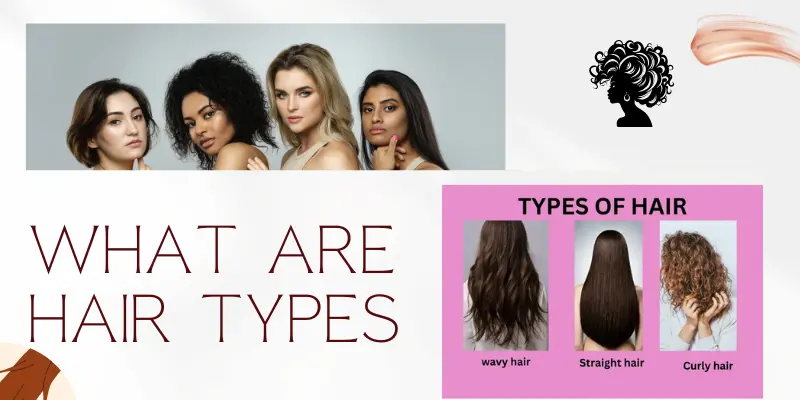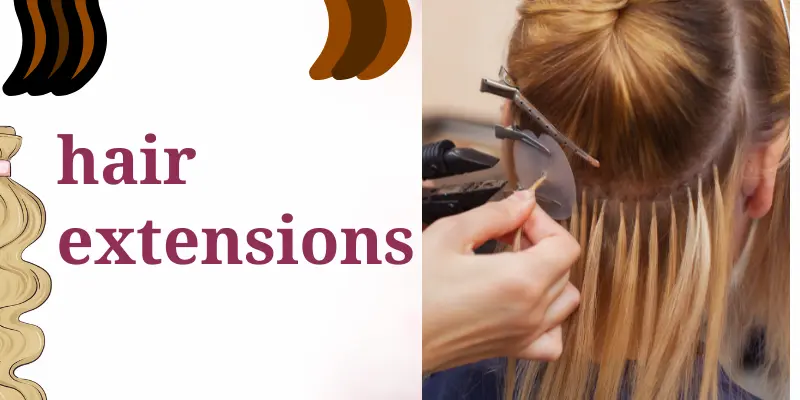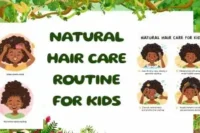Understanding Hair Structure, Function, and Importance
Published: 14 Sep 2024
Understanding hair structure starts with realizing just how complex hair is. It plays a major role in our appearance and health, yet many of us overlook its deeper details. From its definition to its wide variety of types and textures, hair holds more meaning than we think.
In this article, we’ll explore what hair is, the different hair types, its key functions, and how to care for it properly. Most importantly, we’ll focus on understanding hair structure, its purpose, and why it matters.
Let’s dive into the world of hair and discover why it’s more important than we realize.
1. What Is the Function of Hair?
Hair is made up of about 90% keratin, a protein also found in the outer layers of our skin. It’s more than just something to style; it serves multiple functions:

Temperature Regulation: Hair on the scalp offers warmth and protects against UV radiation from sunlight.
Protection: Body hair helps preserve body heat by holding insulating air near the skin.
Sensation: Hair follicles are connected to nerve endings, helping us sense environmental changes.
2. Why is Hair Important?
What is hair? It’s a key part of our identity—tied closely to how we look and feel. For many, it carries deep cultural, social, and even symbolic value.
Think about it: A good hair day can boost your confidence. A change in hairstyle can represent a new chapter in life. From curls to fades to braids, hair becomes a tool for self-expression.
Personal Story: I remember cutting my long curls into a short bob after college. That haircut felt like a fresh start, a way of saying, “I’m ready for what’s next.” Hair has that kind of emotional power.
3. What Is Human Hair?
Human hair is made of a protein called keratin, which grows from follicles in the scalp. Since hair is primarily protein-based, protein hair masks are essential for restoring strength, reducing breakage, and maintaining a healthy appearance.
Hair is made up of three main layers:

- Cuticle is the outer layer that protects the strand.
- The cortex, the middle layer, is rich in keratin and melanin (hair color).
- Medulla – the soft inner layer (not found in all hair types).
It grows from hair follicles, which are tiny organs under the skin. These follicles produce the strands, determine hair color, and regulate growth.
4. Does Hair Contain DNA?
Yes, especially in the root or follicle. Hair follicles hold DNA, which is useful in genetic testing and forensic science.
However, the visible part of your hair above the scalp does not contain nuclear DNA. Chemical analysis can still show what nutrients or toxins you’ve been exposed to, like a timeline of your health and habits.
Personal Story: In a biology lab, I once tested a strand of my hair. While it didn’t tell me who I was genetically, it showed my vitamin levels and stress markers. It was like reading a journal written by my hair.
5. What are Hair Types?
Hair types refer to the natural shape and pattern of your hair strands, ranging from straight (Type 1) to coily (Type 4). Understanding the different types of hair helps tailor your care routine, as each type has unique needs and styling challenges.

Hair types fall into four basic categories. Hair types fall into four basic categories:
Straight Hair
- Shiny, smooth, and lies flat.
- Oils travel easily from the scalp to the ends.
Wavy Hair
- Forms loose, flowing “S” shapes.
- It can frizz in humid weather.
Curly Hair
- Defined ringlets or spirals.
- More prone to dryness and tangling.
Coily Hair (Afro-textured)
- Tight curls or zig-zag patterns.
- Very delicate and needs moisture-rich care.
Personal Story: My younger sister has tight, coily hair. For years, she battled dryness until she discovered deep conditioning masks with shea butter. Now her hair looks fuller, healthier, and bounces with pride.
Hair extensions
Hair extensions can be a great way to add volume or length, but they must be used wisely. Unlike human hair wigs, which offer full coverage and styling flexibility, extensions blend with your natural hair and require careful application to prevent damage.

- Clip-ins are gentle and temporary.
- Tape-ins can be light and easy to manage.
- Sewn or bonded extensions might stress the scalp if worn too long.
To protect hair structure, always moisturize, avoid tension, and give your scalp regular breaks.
How to Grow Hair Faster
While genetics plays a role, these tips can support better and faster hair growth:
Stay Hydrated
Water helps deliver nutrients to your scalp and strands. Aim for 8 glasses a day.
Limit Heat and Harsh Chemicals
Reduce the use of straighteners, bleach, or harsh dyes. Heat weakens the hair shaft and leads to breakage.
Use Gentle Hair Care
Opt for sulfate-free shampoos and conditioners. Massage your scalp to boost circulation and follicle activity.
Final Thoughts
Hair is more than just a style; it’s a sign of health, culture, and self-expression. Whether your hair is straight, wavy, curly, or coily, knowing its structure helps you treat it better.
When you understand hair structure, you make smarter choices, choosing the right shampoo, brushing gently, or skipping heat tools. Every choice matters.
So, explore, care for, and love your hair, because understanding hair structure is the key to unlocking its full potential
FAQs: Understanding Hair Structure
Yes, diet plays a major role in how your hair grows and looks. Protein is the building block of hair, while iron helps carry oxygen to the roots. Vitamins like biotin, vitamin D, and omega-3 fatty acids improve scalp health. Eating eggs, nuts, fish, and leafy greens regularly can make hair stronger and shinier.
Coconut oil is a deep moisturizer that reduces protein loss in hair and keeps it nourished. Argan oil is lighter and helps fight frizz, add shine, and repair split ends. Castor oil supports thicker hair growth because it’s rich in ricinoleic acid. Using these oils once or twice weekly keeps your hair healthy without weighing it down.
Hair turns gray when melanin, the pigment that gives color, decreases in the follicles. With age, melanin production slows down naturally. Stress, smoking, and poor lifestyle choices can speed up this process. Genetics also plays a big role, which is why some people go gray in their 20s while others stay dark longer.
Dandruff is often caused by a fungus called Malassezia. Anti-fungal shampoos with ketoconazole, zinc pyrithione, or selenium sulfide are very effective. Washing 2–3 times weekly with such shampoos can reduce flakes quickly. Also, keeping the scalp hydrated and avoiding harsh hair products prevents it from returning.
On average, hair grows about half an inch per month, or six inches per year. The speed depends on genetics, age, and health. Eating well, staying hydrated, and avoiding heat damage can maximize growth. While products may boost scalp circulation, they cannot change your natural growth rate drastically.
Yes, high stress can trigger a condition called telogen effluvium. This makes hair follicles enter a resting phase, leading to sudden shedding. The shedding usually starts around three months after the stressful event. Luckily, this type of hair loss is temporary and often reverses once stress levels improve.
Hormones like DHT, thyroid imbalances, or PCOS can affect hair growth. Men often notice a receding hairline or thinning at the crown. Women may see hair widening at the part line or overall thinning. Blood tests and a doctor’s check-up can confirm the cause and guide treatment.
Extensions can damage natural hair if applied too tightly or worn for too long. Glue-ins and tight sew-ins may cause traction alopecia (hair pulling). Clip-ins are safer because they don’t stress the scalp much. Taking breaks between uses helps prevent long-term hair damage.
Just like skin, hair suffers from UV rays, which weaken and dry it out. Wearing hats or scarves outdoors provides the best protection. UV-protective hair sprays are also effective for daily use. After swimming, always rinse hair to remove chlorine or salt, then condition it to restore moisture.
Yes, baldness is strongly linked to genetics, especially androgenetic alopecia. The DHT hormone shrinks hair follicles over time, making strands thinner. If baldness runs in your family, you may notice early signs by your 20s or 30s. Early treatments like minoxidil or finasteride can slow the process.
Daily washing is only necessary if your scalp produces excess oil or if you sweat a lot. Over-washing can strip away natural oils, leaving hair dry and brittle. People with dry or curly hair should wash just 1–2 times weekly. Using a gentle shampoo and conditioner keeps hair balanced.

- Be Respectful
- Stay Relevant
- Stay Positive
- True Feedback
- Encourage Discussion
- Avoid Spamming
- No Fake News
- Don't Copy-Paste
- No Personal Attacks

- Be Respectful
- Stay Relevant
- Stay Positive
- True Feedback
- Encourage Discussion
- Avoid Spamming
- No Fake News
- Don't Copy-Paste
- No Personal Attacks





